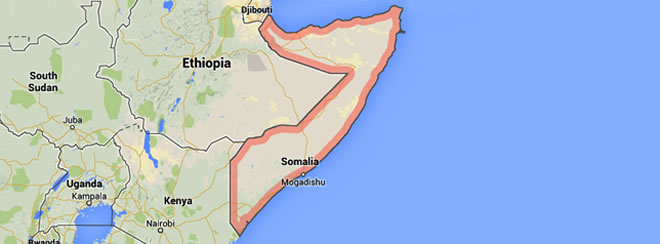by Mohamed A. Alasow
Thursday, April 26, 2018

The Somalis were aid dependent for 27 years and prospects of emancipation from charity are a distant dream, since the Federal Government of Somalia's (FGS) focus to country and people's development is neither an issue nor a priority; as the concentration to development is constantly obscured and upset by political turmoil, insecurity, corruption, delusions about Federalism, etc.
The three pillars of the government are not well established in Somalia, except the Executive and the Legislative, the Judiciary branch is either sideline or neglected, while the Constitution is at an interim phase for six years. Whereas, the periodic frictions between the Executive and /or Legislative, paralysis the governance and development endeavors and heightens the insecurity.
Moreover, despite different ministerial positions instituted to oversee the national development, i.e. agriculture, livestock, fishery, etc., yet, the development sector is facing a huge challenges. Similarly challenged are the service delivery; health, education, water and sanitation, etc. which is in the hands of the private sector, whereas the government role is either limited, absent or uncertain. In short, the above situation indicates that those tasked to deliver the development in Somalia might have capacity challenges that require bridging through training, regular monitoring and guidance. On the other hand, the high turnover of ministerial positions and their supervisors is a weak link to development; a move that discourages donors and development partners alike, when it comes to, dealing with the new Ministers - most of them novice - who need time to understand the development processes before they take on their duties seriously.
In addition to that, most of the political leaders seem to be authoritarian; instead of empowering the different institutions, they distract them by becoming involved directly or indirectly in their institutional duties and responsibilities, especially, those institutions and /or agencies that bring in revenues. Therefore, to achieve tangible development results, a thorough change in leadership attitude may be one of the key ingredients to development and good governance in Somalia.
Nevertheless, the FGS's focus to development is equally hampered by the Federalism structure; a system adopted out of clan interests and based on international community pressure. Sadly, the Federalism ideology was embraced and implemented as a new style of governance without proper policy sensitization, education and acceptance by both the public and the politicians. For example: the Federalism fostered power struggle between FGS and Federal States. Besides, the Federal State Administrators, styled themselves as 'Presidents' (a title not accorded to them in the constitution) and took national decisions affecting only their respective regions, when it comes to development and resource sharing.
Even though, stepping up the national security is the mantra of every Somali leader, yet, no tangible success is achieved, since, approaches and responsibilities to boost the security seem not well defined, as well as the skills, knowledge, experience and type of competencies required to reinforce the security sector. in short, the ills and the Achilles' heel of the sector that require thorough attention include: corruption, nepotism, mismanagement, poor performance, etc.
The above distracters to development and more, paved the way for Humanitarian Organizations to fit in and fill the void. Regrettably, the Aid Agencies are trying to manage and achieve a progress that is not much linked to the national development agenda. Because of the above dilemma, the Somalis will be forced to remain destitute, unemployed, under-developed, and charity dependent for years to come, unless the FGS takes seriously the development agenda.
To achieve a significant development and resilience in Somalia: the FGS should (1) adopt a careful selection process of personnel coupled with background check; (2) clarify roles and responsibilities for each institution and personnel; (3) create code of conduct for all personnel; (4) encourage for inter-ministerial collaboration for efficient use and rationalization of funds while avoiding fragmented programs; (5) intensify public participation in development; (6) with the help of the International Community advocate for the creation of a good governance system that fosters the national development agenda, boosts the service delivery, fights corruption, and other ills to governance. One of such system, is the e-Government. A good example to reckon with is Rwanda's successful implementation of e-government; a success story replicated in many other African countries. According to Nkohkwo and Islam, (2013) the most common challenges to address prior to adopting e-Government in Sub-Saharan Africa are ICT infrastructure, human resources, legal framework, Internet access, the digital divide, and connectivity. However, to implement e-Government in Somalia, requires political will rather than infrastructure development. At present, in Somalia, ICT services are used to advance Hawala/Banking systems, a network of remittance companies, each linked to a user-friendly e-service system developed to connect all their businesses worldwide and rid of corruption within their ranks.
Despite the hiccups, there is still a hope in Somalia, even when all prospects seem bleak, work on linking all government services at all levels, boost transparency, promote public confidence, and use adopt e-government to create a bio-data/ID systems, that may facilitate one-man-one-vote scheme for 2020. In a nutshell, an honest leadership, a tranquil political climate, and good governance may ease the hitches in security and influence the development endeavors.
Author: Mohamed A. Alasow, Senior Development and Humanitarian Specialist, Former UN Technical Officer, in Somalia, South Sudan and The Sudan. E-mail: [email protected]